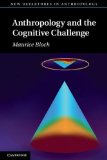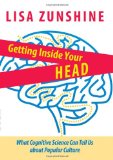new book – ‘The 5 Elements of Effective Thinking’ by Edward B. Burger and Michael Starbird
August 28, 2012
The 5 Elements of Effective Thinking by Edward B. Burger and Michael Starbird (Princeton University Press, 2012)
Book description from the publisher:
The 5 Elements of Effective Thinking presents practical, lively, and inspiring ways for you to become more successful through better thinking. The idea is simple: You can learn how to think far better by adopting specific strategies. Brilliant people aren’t a special breed–they just use their minds differently. By using the straightforward and thought-provoking techniques in The 5 Elements of Effective Thinking, you will regularly find imaginative solutions to difficult challenges, and you will discover new ways of looking at your world and yourself–revealing previously hidden opportunities.
The book offers real-life stories, explicit action items, and concrete methods that allow you to attain a deeper understanding of any issue, exploit the power of failure as a step toward success, develop a habit of creating probing questions, see the world of ideas as an ever-flowing stream of thought, and embrace the uplifting reality that we are all capable of change. No matter who you are, the practical mind-sets introduced in the book will empower you to realize any goal in a more creative, intelligent, and effective manner. Filled with engaging examples that unlock truths about thinking in every walk of life, The 5 Elements of Effective Thinking is written for all who want to reach their fullest potential–including students, parents, teachers, businesspeople, professionals, athletes, artists, leaders, and lifelong learners.
Whenever you are stuck, need a new idea, or want to learn and grow, The 5 Elements of Effective Thinking will inspire and guide you on your way.
Google Books preview (scroll past blank cover page):
See also: Book’s Facebook page







